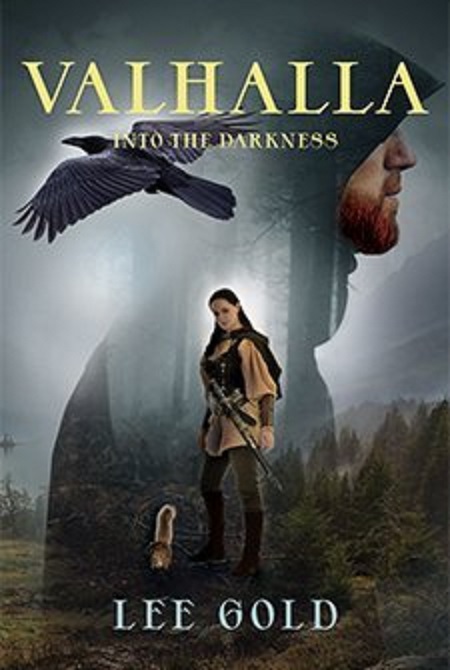Book Review: Valhalla: Into the Darkness by Lee Gold
Note: This review will have SPOILERS for Valhalla: Absent Without Leave so if you have not read that book, you may want to read that review first.
Robin Grima Jonson and her oathmates have managed to avert Ragnarok, or at least the version of it that was in the prophecies. Now would seem a good time to plan weddings for those that fell in love, and mending fences for those who hurt others, however necessarily. But Ragnarok itself was not the only prophecy of doom for Asgard. The sun is growing cold, and Fimbulwinter is coming. The warriors of Valhalla and their allies will need to find new reserves of courage and willpower to overcome this menace.

The quests begin as requests from Odin, chief of the Asgardians, to find certain long-lost relatives to invite to the wedding feasts. This turns out to be connected to certain horrific crimes of the past, the perpetrators of which are planning new ones.
This is the second part of a trilogy written by Lee Gold, long-time editor of the Alarums & Excursions gaming APA. She’s done a lot of research on Norse mythology and culture, and it really shows on the page–though the take on the mythos is…unique, turning some assumptions in the original eddas on their heads.
Chatterbox narrator Ratatosk is much more of a central character in this one, with relatively few scenes not from his viewpoint. The other characters are certainly still there, but pushed into the background a bit. When the narration is on point, it can be fun to have infodumps in the middle of the paragraph, but it can be tiresome to have daily rituals repeated over and over. And this also means that what would be in most fantasy novels one of the most exciting chapters is mostly offstage (ala Bilbo being unconscious for the big final battle of The Hobbit.)
I can really spot the influence of many years of running role-playing games on the narrative. The heroes avoid splitting the party as much as possible, plan carefully and take precautions, remembering to renew their protections each day. Much more emphasis is placed on negotiation and problem solving than on combat; there’s surprisingly little on-screen violence for something based on Norse mythology. But it is a good way to make allies even out of people who have been enemies.
The villains are despicable with their mind-bending magic and pretense of benevolence. Late in the story, there’s a connection made to Workaday World politics of recent vintage, you’ll know it when you see it.
I don’t like this cover. I do like that there’s extensive author notes on the people and places that appear in this volume (and a couple of hints for the last one.)
Content note: Bullying, emotional abuse, extramarital sex happens but is not described, some of it being pretty iffy. Body horror, which would be a lot gruesome if it were shown rather than narrated. Cannibalism. Readers who are able to handle unexpurgated Norse mythology shouldn’t have a problem here.
The book suffers a bit from being the middle part of a trilogy, though it does nicely tie up most of the plot threads introduced here so I didn’t feel cheated. Ratatosk is a better narrator than a protagonist, and I am hoping the spotlight moves off him for the final volume. If you liked Absent Without Leave, you should enjoy this sequel.

